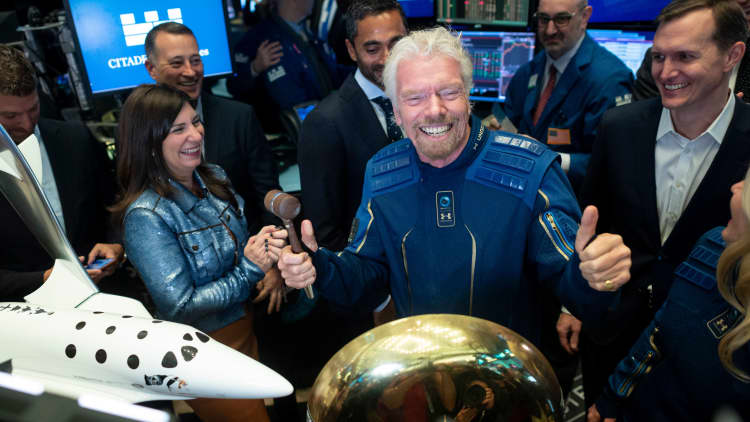
Have you ever gazed at the night sky and imagined what it would be like to break free from Earth’s gravity? Drifting weightlessly, watching Earth shrink into a blue speck as the infinite void of space unfolds before you? It feels like a scene from a sci-fi movie, but it’s not fiction—it’s happening right now.
Space tourism is no longer a distant fantasy; it’s at our doorstep, promising a future where space isn’t just for astronauts but also for anyone with deep enough pockets. But with this thrilling possibility comes a flood of questions. Are we truly prepared for space travel? Could we unknowingly contaminate alien ecosystems—or worse, bring back something unknown? And the biggest question of all: should we even take this leap?
The Billionaire Battle for Space
For most of history, space exploration was the domain of governments. The Soviet Union sent Yuri Gagarin into orbit. The US put Neil Armstrong on the Moon. But today, the frontiers of space are being claimed by billionaires. Jeff Bezos, Richard Branson, and Elon Musk are in a fierce battle to make space travel as normal as booking a flight. Companies like SpaceX, Blue Origin, and Virgin Galactic have already launched tourists into space, and some have even planned hotels in orbit a decade ago, this would’ve been dismissed as fantasy.
Let’s be real—space tourism isn’t a vacation. The human body is built for Earth, and leaving its comforting gravity is not as easy as boarding a plane. For starters, your bones and muscles start weakening the moment you enter zero gravity. Astronauts lose 1–2% of their bone mass per month in space, a condition similar to osteoporosis on Earth. Even simple tasks like sleeping or eating become a challenge when everything floats. Astronauts on the International Space Station undergo hours of daily exercise just to counteract these effects. And then there’s radiation—without the protective shield of Earth’s atmosphere, space travelers are bombarded with cosmic rays, heightening their risk of cancer and neurological damage. These are challenges astronauts train for years to endure.
The Great Unknown: Are We the Only Ones
Every spacecraft we send carries an unseen risk—Earth’s microbes hitching a ride and contaminating these pristine worlds. History has already shown us the dangers of unintentional contamination—when European explorers brought smallpox to the Americas, it wiped out entire civilizations. What if our microbes do the same to an alien ecosystem before we even realize it exists? But what if the danger comes home with us? What if a microscopic organism—something unknown, something our immune systems have never encountered—sneaks back to Earth? Scientists aren’t just speculating; this is a very real concern
Scientists recognize this risk—NASA’s Office of Planetary Protection, ISRO, and other space agencies enforce strict sterilization protocols to prevent Earth’s microbes from contaminating other worlds and vice versa. NASA follows rigorous decontamination procedures for spacecraft, while ISRO ensures planetary protection through controlled mission designs, like in Chandrayaan and Mangalyaan, minimizing biological contamination risks.
The solution isn’t to stop exploring but to be smarter about it. Innovations in synthetic biology and AI-driven monitoring can help detect and contain microbial threats. Space laws must evolve to hold both governments and private missions accountable.
Space isn’t just a playground, it’s a responsibility. If we explore with caution and curiosity, we may not only find life beyond Earth but also protect both worlds in the process.
Cosmic Joyrides vs. Climate Crisis
At this moment, space tourism is a luxury only the ultra-rich can afford. While millions on Earth battle poverty, climate change, and conflict, billionaires are spending fortunes on cosmic joyrides. And let’s not forget the environmental cost. Every rocket launch spews an enormous amount of greenhouse gases into our already fragile atmosphere. While we’re trying to cut carbon emissions, space tourism is doing the opposite. Are we really ready to trade Earth’s well-being for the sake of cosmic adventure?
A New Age of Exploration or Exploitation?
Yet, despite the risks, challenges, and ethical dilemmas, space tourism is not slowing down—it’s only gaining momentum. And who knows? Maybe it’s the first step toward something far greater. If done right, commercial space travel could fuel scientific breakthroughs, revolutionize technology, and one day make space accessible to all. What seems like an elite indulgence today might just be the key to transforming humanity into a multi-planetary species
As we stand at the edge of the cosmos, we must decide—will space travel be humanity’s greatest triumph or its most reckless gamble? The universe awaits, but the responsibility is ours
So, are we ready? The truth is, nobody knows. But one thing is certain—our journey into the cosmos has begun. Whether our voyage leads to discovery or downfall, only time will tell.
By: Varada Sakore
Write and Win: Participate in Creative writing Contest & International Essay Contest and win fabulous prizes.


